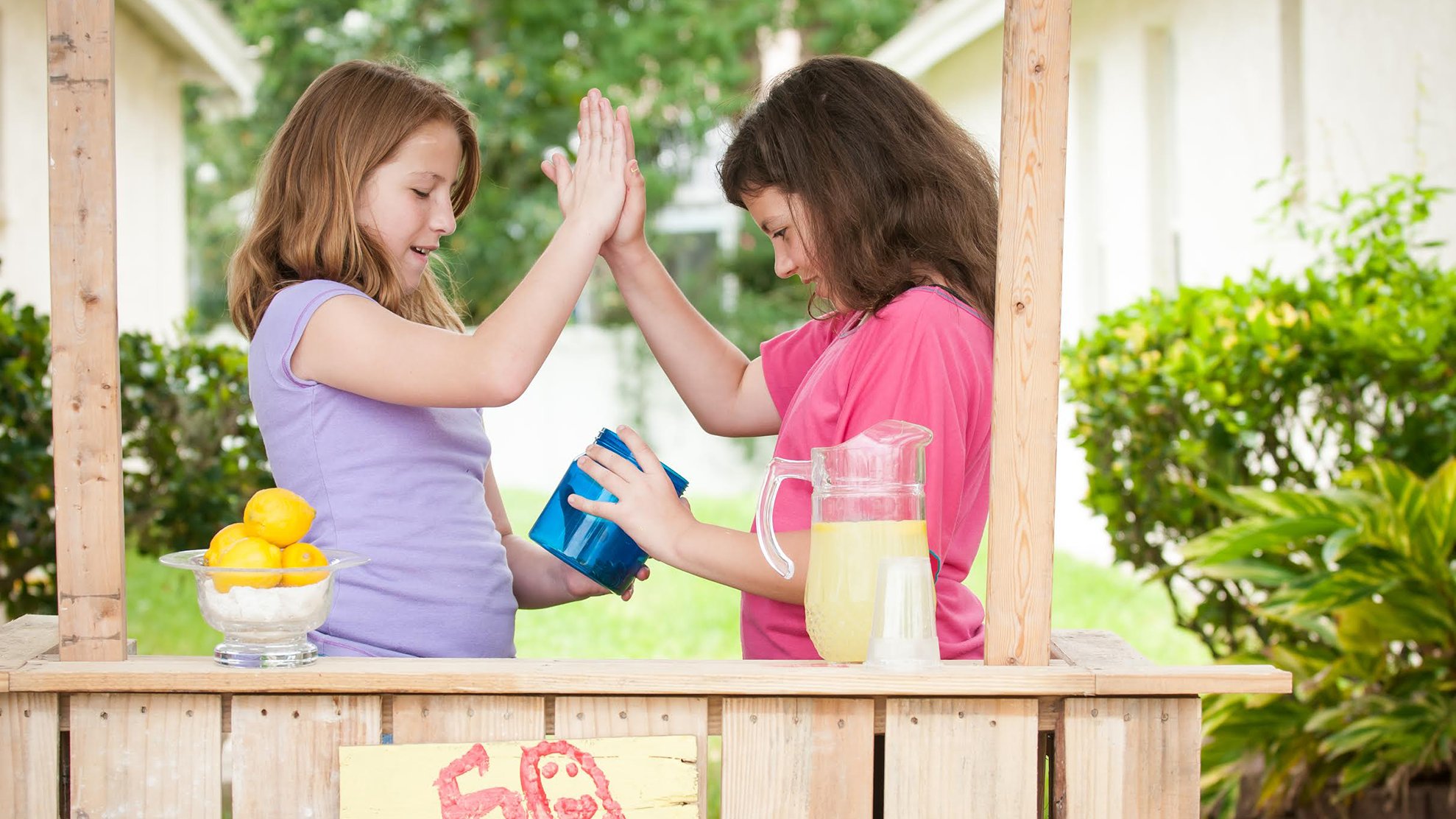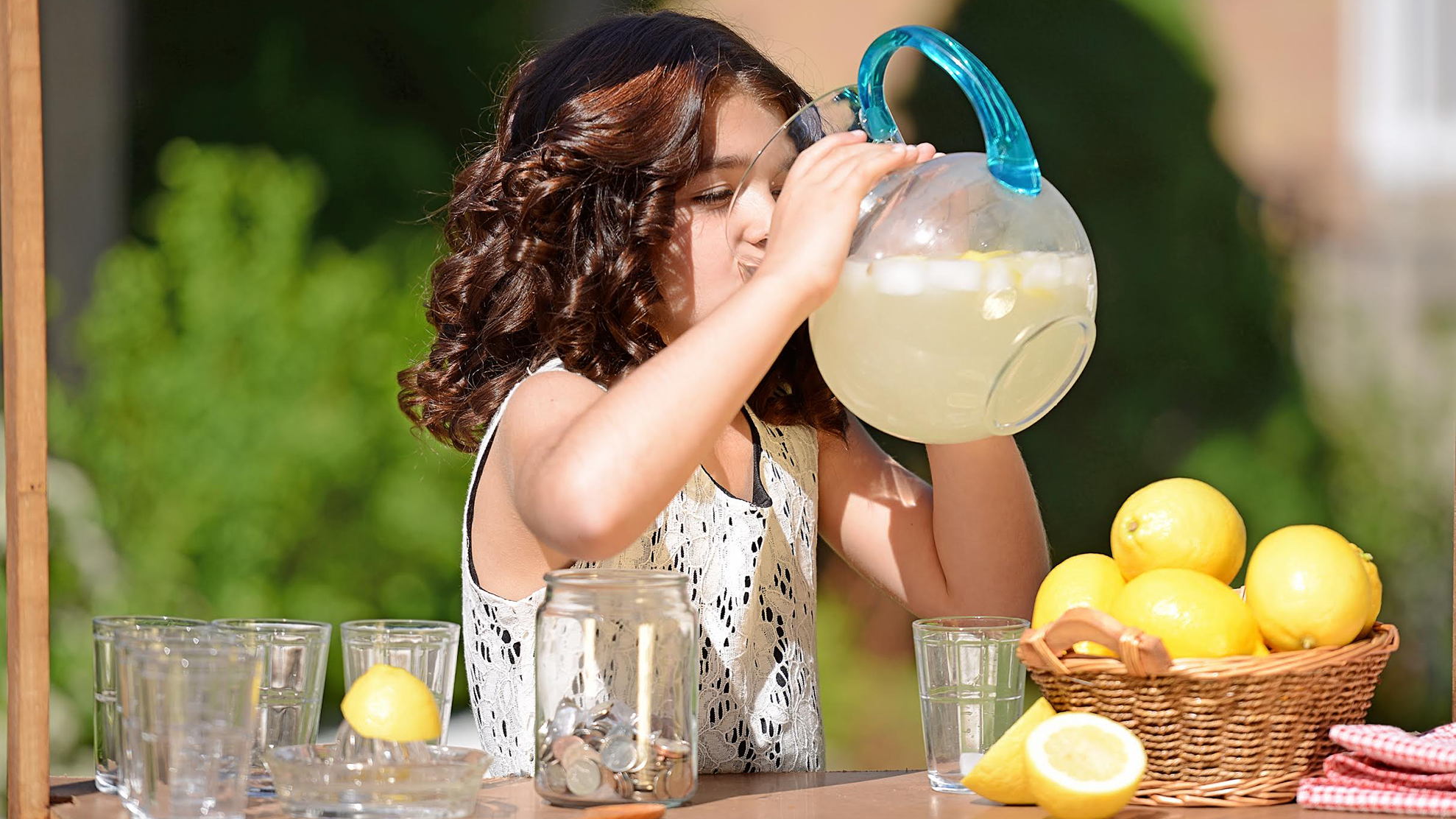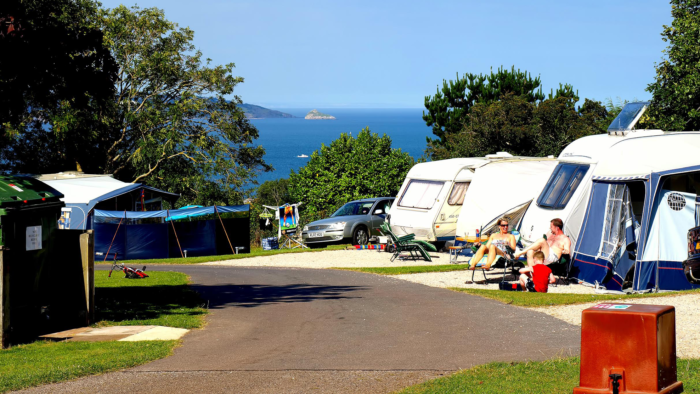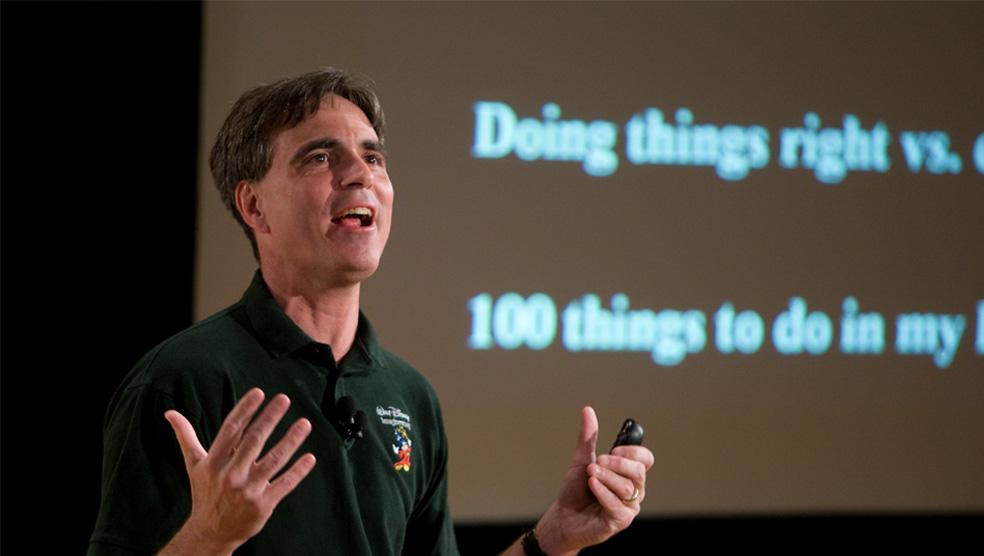The Only Thing That Teaches Kids About Money

We know a parent who maintains that the only thing that teaches kids about money, is not having enough. For the most part, kids don’t have very much money, so if scarcity is indeed the mother of personal finance motivation, why aren’t more kids interested in how money works, and how they can earn some? The answer of course, is because most of their needs are being met by their parents.
How do you give your kids enough money-smarts to allow them to thrive once they leave home, while respecting the idea that childhood is the one time in life when paying the bills isn’t front and centre? At Gifting Sense, we believe you can meet both those goals by teaching your kids to think before they buy. There are lots of natural opportunities to do so. Here are three classic summertime options, when school is out, kids are earning some of “their own money”, and families tend to go on vacation:
- Allow your kids to set up a lemonade stand on the next hot sunny day. Yes it will more than likely be a messy and not-free experience for you, but the lessons they will learn by tabulating the true after-cost(s) profits are worth it. How many customers did they get? Was it hard to make the lemonade and keep it cold? Did they lose profits to personal consumption? Did they consider a few different price points? Did they consider volume discounts? Did time of day or weather impact sales? Many a child has remarked on how hard they worked and how little they made after their first (and only…) lemonade stand. How many glasses of lemonade would have to be sold to pay for a new soccer ball? As parents tend to be the universal providers of the inputs to production for lemonade stands, you’ll be in the position of generous benefactor when the time comes to discuss lessons learned – on that front alone, it is worth it.
- Frame potential purchases in terms of hours worked, versus dollars spent. Does your son or daughter have their first job this summer? How much are they making an hour? Translating a $50.00 pair of shoes into 5 hours of babysitting or cutting five lawns really helps to drive home their true cost and value. How often have we seen our children become completely uninterested in a purchase once it is for their own account? They “worked hard” for their money and tend to spend it with a lot more care than they do someone else’s. Eating in is always cheaper than going out. Movies are half-price on Tuesdays in many theatres. Once grabbing a burger and shake or going to see a movie “costs” two hours of camp counselling, watch how quickly dinner at home before a Tuesday night movie becomes the new plan!
- Casually make note of the sacrifices you made in order to pay for this summer’s family vacation, or any clever way you might have been able to reduce its cost. Did you and your spouse make the conscious decision to forgo a new vehicle this year in order to pay for a summer rental? Personal finance lessons don’t have to be lengthy or formal. When your kids express how much they are enjoying being at the cottage, respond that you too are really enjoying the time together and think it was more than worth postponing getting a new car. Are you using travel reward points (TRP) to pay for a hotel room? Mention that you miss being away from home when work requires you to travel, but that you are grateful for the fact that your employer allows employees to amass TRP for personal use and that you likely wouldn’t have been able to stay “on the beach” without that help.
We know, lemonade stands are messy and rarely make real profits, but let them set one up anyways and give your kids the experience of trying to earn money. You’d be surprised how much impact small experiences and discussions can have when they are casually woven into traditional summertime activities. Use the natural segue of a child expressing gratitude as an opportunity to note you are always looking for ways to spend wisely so that your family can enjoy things like trips to the beach.


Our friend Kyle remembers the year his parents told he and his sisters that they weren’t going to go on their annual bike trip because the savings would allow them to pay off the mortgage one year earlier. “It was the first time I understood that even adults with responsible jobs couldn’t always have exactly what they wanted. I missed the trip, but looking back really appreciate that my parents lived the way they did. I have friends who still cannot make sacrifices in order to meet a financial goal. I realize now that my parents having made three of four memorable personal finance choices when we were growing up, is what taught us that sacrifices are both necessary and worthwhile .”
Of course Gift Surveys are always an easy, free and convenient way to help parents teach their kids to think before they buy. They take less than two minutes to complete on any device, including smart-phones, and give kids quick but meaningful lessons on what to consider when making well-thought-out consumer decisions. Have your kids complete one for a trip to a water park, the new laptop they just have to have for school this year, or even a lemonade stand! You don’t have to be a financial expert or rob kids of their childhood to give them one of the best gifts ever – you just have to be willing to talk about smart ways to spend money when the opportunity arises. Click on the pink or green buttons below to see how we can help structure, or bring those conversations about, today.




